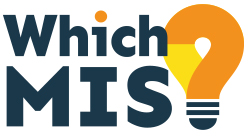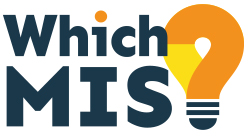In September we published two articles around referral fees to partners who refer a school to an MIS provider who then goes on to purchase their MIS platform.
The first was entitled ‘School Support Teams and Referral Fees: Ethical Or Not?’
The second a couple of days was ‘The Difference Between A Referral Fee And A Kickback’.
These prompted a number of conversations from MIS suppliers, Local Authority traded services and several other interested parties.
We thought we’d ask a few more questions, and started by issuing four FIO (Freedom of Information Requests) to some large, traded Services.
Unsurprisingly, despite a couple of polite reminders three are yet to respond. One compliance officer promptly pointed out that this is ‘in commercial confidence’ and therefore didn’t have to reply.
Earlier this month we sent an email to MIS providers that offer their services to State schools & MATs.
We said:

We received responses from ESS – SIMS, Iris, Bromcom & Compass as follows.

How much do you pay external support teams for them to provide schools with the support they need for your MIS?
“Under our current contracting approach, we do not make payments to external support teams for the provision of support services to customers. Customers on these subscription agreements add support as an option so it is excluded from the core software fee. Customers can choose to take support from ESS or buy directly from an Approved SIMS Support Unit (SSU) if they prefer”
How much do you pay these support teams as a referral/reseller fee when they advise a school to purchase your MIS?
“ESS (SIMS) does not pay any referral fees for new software sales. Also, we do not have any UK resellers of our software. We don’t do this because schools should be offered independent advice when selecting their MIS. They should get the best solution offering the best value for their needs. They need confidence that what has been recommended is the best for them and not the solution that gives the best inducements to the support team”

How much do you pay external support teams for them to provide schools with the support they need for your MIS?
Compass is an international MIS provider and we operate across a number of countries and number of educational systems. The ecosystem that exists in the UK (and predominantly in England and Wales) of external companies providing support services for MIS platforms is not universally common.
However as we have a somewhat unique perspective on this model we can easily recognise the huge benefits that this system provides to the schools and to the end users.
Amongst many things; targeted local help and specific local knowledge to help with complex school issues as well as swift response times and high levels of customer service from well experienced people/teams are frequently stated reasons that schools value this model.
How much do you pay these support teams as a referral/reseller fee when they advise a school to purchase your MIS?
Compass is currently in the process of creating our Partner Model for the UK market and we will be launching this in 2024. We are in dialogue with a number of organisations, both public and private, about what really works for them and their customers. The feedback has been really helpful and there is a clear appetite amongst these support providers to innovate, to diversify and to offer their schools increasing levels of choice.
We also hear that some of the current partner models are perhaps not as win-win as they could be – for example, a high cost “bar of entry” to becoming a partner is stifling for many smaller providers looking to expand their vendor list. In addition, arrangements that place a high level of focus and/or commercial reward on quick wins over long term service and quality can also clause some tension between the MIS vendor and the partner.
Whilst we do recognise the importance of the commercial elements of a partnership model, referral fees being just one of them, Compass will be looking at this a little differently and the feedback we have had suggests that there is a good appetite for some fresh thinking in this space. Something that rewards true partnership, high levels of service quality and a long term commitment will be some of our driving considerations.

How much do you pay external support teams for them to provide schools with the support they need for your MIS?
We do not have any kind of referral scheme for support centres or partners
Our arrangements with support teams vary but do include payments for support. Individual arrangements are commercial in confidence
How much do you pay these support teams as a referral/reseller fee when they advise a school to purchase your MIS?
We do not pay referral fees – or kickbacks – to support teams for new customers and are strongly against such practices.
Support centres owned by Local Authorities are bound to provide impartial advice in line with the government’s ethical standards for public service providers.
Payments to support centres for new customers would compromise integrity and be akin to ‘cash for votes’.

How much do you pay external support teams for them to provide schools with the support they need for your MIS?
We typically pay external partners a 20% fee for supporting our IRIS Education products, but this can depend a little on their support model.
How much do you pay these support teams as a referral/reseller fee when they advise a school to purchase your MIS?
For transparency, we do not pay sales or referral fees to partners.
We are proud of our partnerships and value the work that they do. We collaborate closely to ensure they can offer the best advice to our joint customer schools and MATs in an independent way.

Whilst we asked Arbor for comment we haven’t had a reply, although someone did send us a link to the Arbor Commercial spreadsheet:
If this is genuine, it shows that Arbor do not pay external support teams for providing support to their schools, but instead allow schools to contract their support with external support teams as they prefer.
However, this document also showed that Arbor do pay partners an annual referral fee if they refer a school to them that goes on to purchase the Arbor MIS. These fees start from £200 per annum for a smaller primary school and increase from this depending on the size of school and the Arbor package purchased up to a maximum of £1,650 per annum.
What are the ethical issues around referral fees?
Accepting financial incentives to promote products to locally maintained schools can raise ethical concerns and potentially compromise the impartiality and integrity of local authorities.
Here are some reasons why local authorities in England may be advised against accepting such incentives:
- Conflict of Interest: Accepting financial incentives may create a conflict of interest for local authorities. Their primary responsibility should be to act in the best interests of the schools and the community they serve. Financial incentives might influence decision-making, leading to choices that prioritise the interests of the provider over the needs of the schools.
- Impartiality: Local authorities are expected to make decisions based on merit, considering the quality and appropriateness of products and services for schools. Financial incentives may cloud judgment and lead to biased recommendations, potentially compromising the impartiality of the decision-making process.
- Public Trust: Local authorities are entrusted with public resources and are expected to use them responsibly and transparently. Accepting financial incentives for promoting specific products may erode public trust, as it could be perceived as prioritising private interests over the public good.
- Quality and Suitability: The acceptance of financial incentives might lead local authorities to prioritise products based on financial gain rather than their actual quality or suitability for the schools. This could result in schools receiving suboptimal products or services.
- Fair Competition: Encouraging fair competition among product and service providers is important for ensuring that schools have access to the best options available. Accepting financial incentives to promote specific products may undermine fair competition by giving preferential treatment to certain providers.
- Compliance with Regulations: Local authorities are required to adhere to legal and ethical standards. Accepting financial incentives without proper disclosure or in violation of existing regulations could lead to legal and reputational consequences.
- Long-Term Impact: Prioritising short-term financial gains over the long-term well-being of schools and the community may have negative consequences. It’s important to consider the sustainability and impact of decisions made under the influence of financial incentives.
There are also some Public Contract Regulations worth noting:
See https://www.legislation.gov.uk/uksi/2015/102/regulation/24/made
Principles of procurement
(1) Contracting authorities shall treat economic operators equally and without discrimination and shall act in a transparent and proportionate manner.
(2) The design of the procurement shall not be made with the intention of excluding it from the scope of this Part or of artificially narrowing competition.
(3) For that purpose, competition shall be considered to be artificially narrowed where the design of the procurement is made with the intention of unduly favouring or disadvantaging certain economic operators.
(4) Contracting authorities shall not terminate public contracts in a manner that circumvents their obligations under Parts 2 and 3.

Our comments:
It’s clear that all MIS providers offer or work in partnership with various traded services or support centres and these partners receive payments for the services they provide, whether from the MIS provider or from the schools that contract support directly from them.
This is widely adopted and normal service which is understood by schools and MATs.
We know that SIMS, Bromcom, Compass & Iris have told us that they don’t offer referral fees to encourage their systems to be recommended over any alternative MIS, whereas Arbor appear to do so.
We firmly believe that recommendations about an MIS platform should be based on the best system for the end user, regardless of referral fees.
Whilst the practice of Referral Payments or Sales Performance Payments (SPIF) is widely accepted in the commercial world, it doesn’t sit comfortably when advising a school on one system over another. We like to believe that all reputable organisations who accept referral payments or have a SPIF programme in place ensure that their end users are fully informed of any such payments received and are transparent about these.

